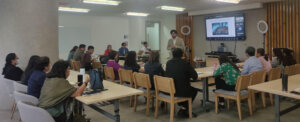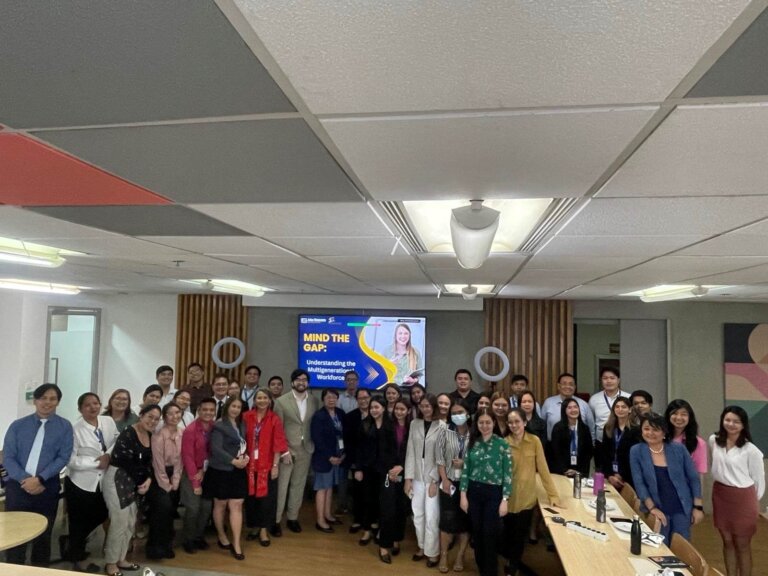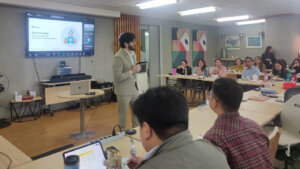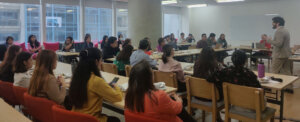The session titled “Mind the Gap: Understanding the Multigenerational Workforce” turned out to be an eye-opener on mental health in the workplace across different generations. Raphael “Raph” Santos, Head of Mental Health Solutions at MedGrocer, demonstrated why this title is fitting for today’s workforce, where five generations coexist, each bringing different expectations and experiences to the table.
As Raph pointed out, Gen Z is entering the workforce with little experience, while Boomers and Gen X are the decision-makers. Gen Y acts as the mediator between these groups. Technological and behavioral shifts have made effective communication across generations a challenge, particularly when addressing mental health.
Mental Health Assessment
The first step in addressing mental health in the workplace is to assess the organization’s current state. Understanding how each generation relates to mental health is key. Gen Z, for instance, experiences higher rates of sadness and hopelessness due to global uncertainties like the pandemic, climate change, and political instability. These factors shape how they view their future and their sense of control.
Wellness Strategies
Organizations should develop wellness strategies to help employees thrive:
- Stress Management:
- Offer resilience training, focusing on communication and problem-solving.
- Build social support networks where employees can feel heard.
- Integrate physical wellness programs, as physical and mental health are interconnected.
- Mental Health Domains:
- Sense of Direction: Gen Z often thinks year-to-year. Mentorship is crucial to help them plan for the future.
- Perception of Control: Empower Gen Z to take charge of their circumstances.
- Self-Evaluation: Help Gen Z gain confidence in their past achievements and life experiences.
- Rewards and Recognition:
- Shift from cash incentives to experience-based and public recognition, especially for Gen Z.
- Offer specific feedback and social recognition.
Organizational Interventions: The COMES Framework
Organizations can foster better mental health using the COMES framework:
- Counseling: Provide access to professional mental health support. Given the shortage of professionals in the Philippines, guide employees to credible role models.
- Outlets: Offer productive, recreational outlets to address post-pandemic FOMO and job insecurity.
- Medicine: Educate employees on the role and limitations of alternative medicines.
- Environment: Adapt to evolving family structures and workplace dynamics.
- Sleep and Stress: Address behaviors like “doom scrolling” that contribute to stress.
Role of Leaders and Supervisors
Leaders play a key role in supporting mental health. Follow the Look-Listen-Link approach:
- Look: Observe changes in an employee’s physical appearance or behavior.
- Listen: Listen actively to make employees feel heard, and ask how they want to be supported.
- Link: Know when to take action, especially if someone is at risk of self-harm. Always ask twice to gather more information.

Supervisors should also be transparent about their own struggles. Seeking help and asking for appropriate training, like Psychological First-Aid, can make you a better support system for your team.
Fostering a Healthier Workplace
Promoting mental health in the workplace across all generations is crucial in today’s environment. Education, empathy, and awareness about therapy and mental health resources are vital for creating an inclusive and supportive atmosphere for all employees. At John Clements, we value the health and wellness of our team. Explore our activities aimed at supporting employee well-being in The Lookingglass.







